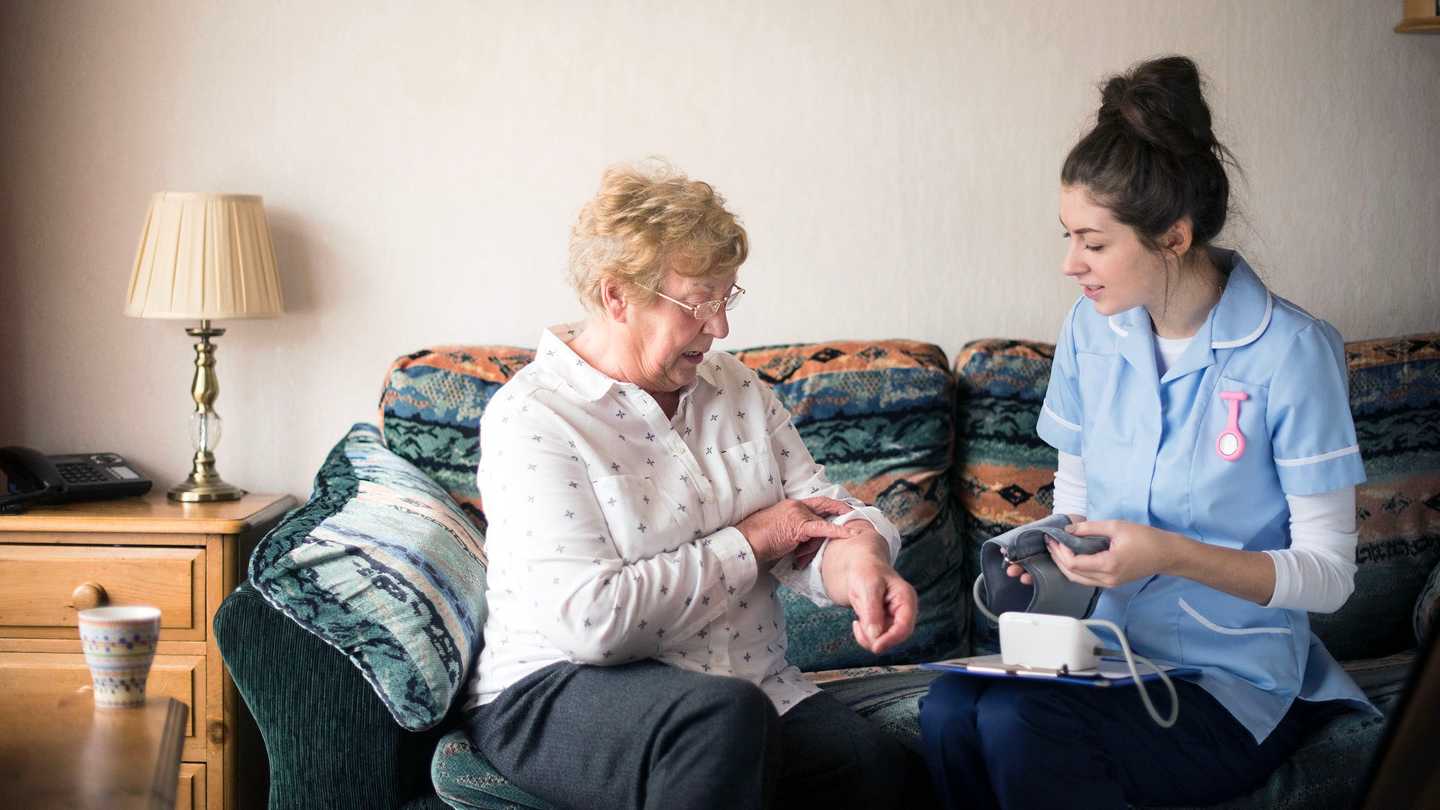Starting as a self-employed nurse or health care assistant

- Juliëtte Geers
- Step-by-step plan
- 11 March 2024
- Edited 15 September 2025
- 6 min
- Starting
You want to start in healthcare as a self-employed nurse or individual health care assistant (VIG'er). This means you are an entrepreneur, as well as providing care. For example, you have to keep records and comply with special laws and regulations. Read this step-by-step guide to get started well prepared.
What do you need to do and arrange when starting a business?
Find out with the 'Personal to-do list' on Business.gov.nl. Answer the questions and see the steps that are important in your situation.
There is a lot involved in being a zzp'er (self-employed professional without staff). By following this step-by-step guide, you will be on the right track and know what laws and regulations apply to you. Are you considering working with an agency? Then read more about choosing an intermediary.
When registering self-employed healthcare professionals, confusion sometimes arises about the designation of healthcare professions and the tasks and steps involved. This step-by-step guide is for the nurse or VIG'er. You nurse and care for the elderly, sick, and/or disabled where they live. This may be in an institution or home, a hospital, clinic, or residential area. You may perform (under supervision) nursing activities such as ostomy and wound care, catheterisation, administering oxygen or tube feeding, or administering medication by infusion or injection. Are you a district nurse? Then this step-by-step guide is for you, too.
Step-by-step guide to becoming a zzp'er
Make a business plan in advance so you can make your plans concrete. Answer at least the following questions: who are you, why do you want to become an entrepreneur, and what qualities do you have? Also describe your offer and target audience: what kind of care do you provide to whom?
1. Check your work relationship
Do you have private clients or do you work via a (home) care institution, intermediary agency, or another professional contractor? Your client and you are both responsible for choosing the right working relationship. Make sure you avoid false self-employment and comply with the DBA Act (Employment Relationships Deregulation Act).
2. Can you live on your income?
Check whether you can make enough money with your business (video) and determine your hourly rate. Are you paid from a personal budget (PGB)? Then check with the municipality or insurance company about the care rates for PGB holders. If your rate is much higher, your clients will have to pay part of it themselves. You may miss out on orders. Are you paid from a PGB or do you provide Wlz care? Then you will be paid for a maximum of 40 hours per week. Also check which law pays for the care you provide. Check with your (future) client or their contact person. You may be paid from the Long-Term Care Act (Wlz), Youth Act, Social Support Act (Wmo), or the Healthcare Insurance Act (Zvw).
3. Arrange your BIG registration
As a nurse you in the BIG register. The register usually processes your application within 3 weeks. You are required to disclose your BIG registration number in all places where you mention your name and profession for your business. Think of your website or email signature. As a VIG, you do not have to register in the BIG register.
4. Register with KVK
Register at KVK as an entrepreneur. You will be given an SBI code that corresponds to the work you do. You can be given more than 1 SBI code if you have more than 1 activity in your business. Companies and the government use your SBI code(s) for such things as determining insurance premiums, issuing permits, and giving subsidies. Check that you get the right code(s) when you register your business and report changes when you start a new activity.
Do you have questions about your situation?
Read more articles about starting in healthcare (in Dutch), or call the KVK Advice team. Even after you start, you can come here for advice and information.
5. Apply for eHerkenning
You need eHerkenning (eRecognition) for your registration with the Care Provider Portal. You can apply for it . Keep in mind that this costs money. The costs differ per type of login and per level of reliability. You will receive the eHerkenning within a day to a few days. If you only provide care under the Wmo, you may skip this step.
6. Log in to the Zorgaanbiedersportaal (care provider portal)
Register with the Zorgaanbiedersportaal (care provider portal) as a new healthcare provider, so that you are known to the Healthcare and Youth Inspectorate (IGJ). This is required by the Care Providers (Accession) Act (Wtza). Log in to the (in Dutch) and complete the questionnaire. After submitting the questionnaire, your registration is complete. If you only provide care under the Wmo, skip this step.
7. Comply with the Wkkgz
Make sure you meet the requirements of the . This means, among other things, that you must become a member of a sector association and appoint a complaints officer. Do you only provide care under the Wmo or Youth Act? Then you do not have to comply with the Wkkgz, but you do have to meet the requirements of the municipality where you provide care. Check with the municipality what these requirements are.
8. Apply for your certificate of good conduct
Apply for a Certificate of Good Conduct (VOG), so that you can show it to your clients. In the previous step, you joined a sector organisation. Check whether they apply for and reimburse a Certificate of Good Conduct for you. If not, apply for the certificate yourself at . A certificate of good conduct costs money. Within 1 to 4 weeks you will have the certificate.
9. Apply for a quality mark
Apply for a seal of approval. Nurses must have a seal of approval so they can apply for an AGB code. It is not for the VIG'er but clients, health care offices or the municipality may ask for it. A seal of approval is proof of quality. It shows that you are a professional entrepreneur. And that you work according to the requirements and rules of your profession. Good to know: it costs money to apply for a hallmark. You will receive the mark within a few weeks. There are two labels to choose from:
- (in Dutch) is a hallmark for self-employed professionals in (home) care. The inspection is done by uploading documents and is valid for 1 year.
- (in Dutch) stands for Harmonisation Quality Assessment in the Healthcare Sector. The inspection is conducted through an interview and is more extensive than the KIWA seal of approval. The hallmark is also more expensive and valid for longer: 3 years.
10. Apply for an AGB code
Apply for a General Data Management Code (AGB code) so that you can declare the care you provide. You can apply for the AGB (in Dutch) at Vektis. Applying takes about 20 minutes, you will receive the code within 5 working days. Does anything change in your situation or your activities? This may affect the validity of your AGB code. Your KVK, BIG, and Vektis registrations are linked. So check regularly whether all 3 still correspond with your actual situation.
11. Check: do you provide compulsory or involuntary care?
Do you provide compulsory or involuntary care? This means that your patient receives care against their will in order to prevent harmful situations. For the patient themselves or for others. Follow the step-by-step (in Dutch) of the Care and Coercion Act (Wzd) and register with the location (in Dutch).
12. Think about your client files
Consider how you want to keep client . You must keep records of each client's health and supervision. What data should be in the file varies according to treatment and medical profession. Clients should be able to view and manage their records free of charge.
13. Check whether you are registered for VAT
Check whether you have to file a VAT return. Two weeks after your registration at KVK, you will receive a letter from the Netherlands Tax Administration. It will state whether you have to file a quarterly VAT return or whether you are exempt from VAT. It is your responsibility to check whether this is correct. Call the Netherlands Tax Administration if in doubt. Check here which healthcare services are exempt from .
For example:
- If you provide care through an intermediary agency, you may be registered for VAT. You must then charge VAT to your client and file a VAT return.
- If you are self-employed without an intermediary agency, most of the services you provide are exempt from VAT. You do not have to file a VAT return.
14. Marketing: find clients
Find clients or customers. Making a marketing plan can help. Individuals and care institutions can be found through your own network and through online platforms where supply and demand come together. Or use a placement agency if you find it difficult to recruit clients.
Arrange general matters for starting entrepreneurs
As an entrepreneur, you also arrange your general terms and conditions, and insurance. This will prevent ambiguity between you and your clients and reduce your entrepreneurial risks. It is also required by law to keep your business records. Read more about administration and bookkeeping here.

